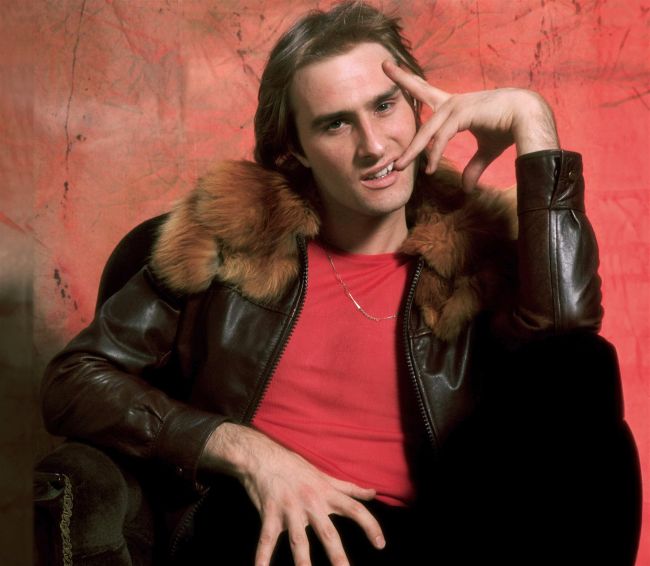REAL GONE
Behind The Smile
Cockney Rebel’s Steve Harley took his final bow on March 17.

Rebel with a cause: Steve Harley in 1976.
Getty, Michael Putland
INITIALLY, STEVE HARLEY was known for his assurance, self-possession and drive as well as his accomplishments as a songwriter. In his first Melody Maker interview, he claimed, “There’s a buzz in Cockney Rebel saying we’re on the brink of being big, being leaders... a musical force that others will follow.”
But like Marc Bolan, Harley was inspired not only by rampant self-belief and a wild, onomatopoeic style of wordplay but what he envisaged as a new sound for a new age. Born Stephen Nice in Deptford, south London, on February 27, 1951, Harley endured childhood polio and frequent hospitalisation, which he says only strengthened his resolve to succeed, and gave him ample time to lose himself in music and poetry.
He later worked as a journalist on local newspapers, but music took hold, first as co-singer and rhythm guitarist for folk-rockers Odin before Cockney Rebel, formed with Odin violinist John-Paul Crocker.
“He envisaged a new sound for a new age.”
Harley conceived Cockney Rebel as an electric guitar-free zone, led instead by Crocker’s violin and Milton Reame-James’s electric piano alongside his own stylised camp delivery; a modern-day version of Harley’s beloved Weimar cabaret scene, which chimed perfectly with glam rock. It was Europe that first succumbed; 1973’s debut single Sebastian – an OTT seven-minute epic complete with orchestra and choir – was a huge hit in the Lowlands, but flatlined at home; likewise Cockney Rebel’s debut album The Human Menagerie. 1974 changed all that. Trimmed-down singles Judy Teen and Mr Soft went Top 5 and 10 respectively, followed by Top 10 album The Psychomodo. When Harley refused his bandmates’ demands for a share of the songwriting, though, all except drummer Stuart Elliott walked.
Undeterred, Harley formed a new Rebel within weeks, and wrote Make Me Smile (Come Up And See Me) about the mutiny, complete with guitar solo. Revenge was sweet when the single leapt to Number 1 in the UK and across Europe.
Another Top 5 hit, Cockney Rebel’s third album The Best Years Of Our Lives was well named. Harley only ever breached the Top 10 again with Rebel’s cover of The Beatles’ Here Comes The Sun in 1976 and, after going solo, the title song from Andrew Lloyd Webber’s The Phantom Of The Opera in 1986, co-sung with Sara Brightman.
His self-confidence shattered, Harley admitted to a drug phase (“the bulk of my success went up my nose,” he said, not forgetting 300 acid trips), and though he starred as 16th century playwright Christopher Marlowe in the musical drama Marlowe, Harley’s new career stalled when Michael Crawford replaced him at the last minute in The Phantom Of The Opera’s stage version.
Only releasing music sporadically thereafter, Harley found other guises: house-husband dad, racehorse owner, BBC Radio 2 Sounds Of The ’70s presenter and regular touring performer, bolstered by Make Me Smile’s ongoing success, whilst his interviews took on a relaxed demeanour.
“I know who I am now and I like it,” he said. “I’m not worried any more.”
Martin Aston
Karl Wallinger World Party chief and Waterboy.